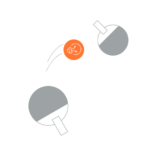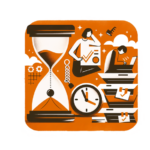
What If Someone at Work Asks You About Your Weaknesses?
Alla Dortman | January 25th, 2024
Hello, I’m Alla Dortman, an HRD professional with a background as a Recruiter, Team Leader, and HR Business Partner. Grounded in my belief in understanding business processes, I’ve gained insights over the years that extend beyond HR, benefiting anyone interested in effective collaboration.
Today, I want to share the motivation behind starting this blog—primarily, to share practical knowledge gained from solving unique HR challenges. My aim is to assist HR professionals and managers grappling with similar situations, contributing to the growth of the HR profession.
Lastly, I aim to inspire and motivate others in the HR community, acknowledging hurdles, emotional stress, and the need for innovative solutions in HR.
On my HRD blog, I’ll delve into various HR aspects, spanning talent management, corporate culture, and leadership development. Anticipate personal success stories, lessons learned, and a platform for open dialogue catering to professionals at all levels of development and HR affiliation.
Now, let’s explore the art of addressing weaknesses in interviews, drawing from personal experiences and providing empowering advice for turning vulnerabilities into triumphs.
Step 1: Choose Relevant Weaknesses
Identifying role-relevant weaknesses is paramount. A project manager walked into a job interview with a perfect resume. Everything in it was flawless: results, accomplishments, and certifications. When I asked him about his weaknesses, he admitted having trouble delegating tasks, finding it easier to do them than to explain. This puzzled me because effective delegation is crucial for leadership. I suggest discussing a relevant weakness: project managers often face decisions under uncertainty. Demonstrate your commitment to improvement with examples of how you’ve learned to analyze risks and make informed decisions.
Step 2: Provide Examples and Actions
In the second step, provide clear examples and strategies that demonstrate your recognition and improvement of weaknesses. Aim for honesty and positivity, turning weaknesses into strengths or opportunities. Cold calling, for instance, can be stressful. I recall the difficulty in writing letters to strangers early in my career. Yet, through practice, learning from mistakes, and a passion for communication, I transformed this weakness into confidently asking anyone a professional question.
Step 3: Highlight Results and Benefits
Emphasize the positive results and benefits of addressing your weaknesses. Aim for a confident, grounded, and factual tone illustrating the added value or impact of your personal growth. For example, in a marketing role application, you might mention evolving from uncertainty in using social media to mastering it by analyzing trends, interpreting data, and creating compelling content. This growth in expertise is a common experience for anyone striving to understand and confidently navigate specific tools.
Step 4: Express Enthusiasm and Willingness
In the fourth step, convey your eagerness and commitment to improving yourself and learning new skills. Aim for a curious, driven, and forward-thinking demeanor that demonstrates how you’ve embraced and thrived on challenges for personal growth. For example, as a prospective leader, discuss how you moved from initial hesitation to excitement about new technology. Embrace this change by exploring new tools, attending workshops, and sharing knowledge. We had just such a situation when a developer, after being promoted to Tech Lead, looked at new technologies from a different angle. When your job involves explaining something new to others, understanding it better becomes essential.
Step 5: Avoid Common Pitfalls
In the fifth step, it’s important to avoid common mistakes that can undermine your answer and the impression you make. Avoid claiming you have no weaknesses, too many to count, or disguising strengths as weaknesses. Such clichéd, insincere, or boastful responses can reflect poorly on your professionalism, preparation, or credibility. Similarly, refrain from mentioning weaknesses that are irrelevant, overly personal, or controversial. These off-topic, distracting, or provocative responses can make you appear unfit, unprofessional, or inappropriate for the role.
Step 6: Practice and Refine
The final step is to carefully prepare and refine your answer. Avoid completely improvising or memorizing, as this can come across as unprepared or inauthentic. Rather, aim to tailor and practice your response to ensure a confident, natural, and effective delivery that presents you as genuine, well-prepared, and persuasive.
You don’t need to memorize your answers; it will sound unnatural. I once had a very strange interview where a candidate tried to use ChatGPT to answer questions. It didn’t work for him because when you wait for a machine to answer, you lose confidence in yourself that your own thoughts are as good as anything.
No one is perfect, and you are not expected to be perfect in an interview, but answering a question about your professional weaknesses can show your self-awareness, your ability to draw conclusions and critically evaluate yourself, which is very valuable in any professional environment.
Thanks for reading, see you in the next post.
Related posts
- Criteria for Psychological Health: 15 Lessons for the Corporate WorldAccurate segmentation of bone structures is crucial for diagnosing fractures, planning surgeries, and monitoring the progression of diseases like osteoporosis.
- Idea Ping-Pong: Mastering the Art of Collaborative InnovationAccurate segmentation of bone structures is crucial for diagnosing fractures, planning surgeries, and monitoring the progression of diseases like osteoporosis.
- Stress Interviews: Hot Trend or Red Flag Central?Let’s face it – every interview is a bit of a test, right?
- Shine in Your Interview: 3 Dos and Don’ts to Prove Your Competence with ConfidenceWith 12 years of experience in the HR field, I have conducted countless interviews.
- Toxic Productivity: No Rest for the WickedProductivity is usually about how many tasks you can complete in a certain time, like writing texts, doing code reviews, or making calls.
- Why People Drop Out of Online ClassesDuring my long HR career, I have conducted over 1000 interviews for a wide range of IT positions.
Join Our Team

Alla Dortman
HRD, Certified career coach
Discover more about Setronica and explore exciting career opportunities by visiting our dedicated career page.
Recent Posts
- How Brands Use AI to Track, Trace and Prove Their Sustainability Claims
- How AI Recognizes Waste: Smart Recycling Technologies in Action
- Rapid Hypothesis Testing for Driver Retention in Delivery Service
- How Setronica Created an AI Slack Bot, Part 3: Putting Our Bot to Work
- Building a Reliable Monthly Accrual Report: Overcoming Challenges and Implementing Solutions






